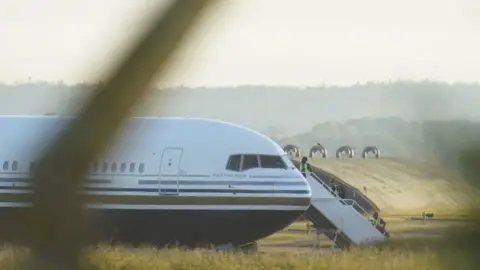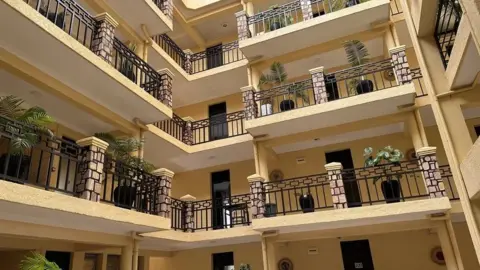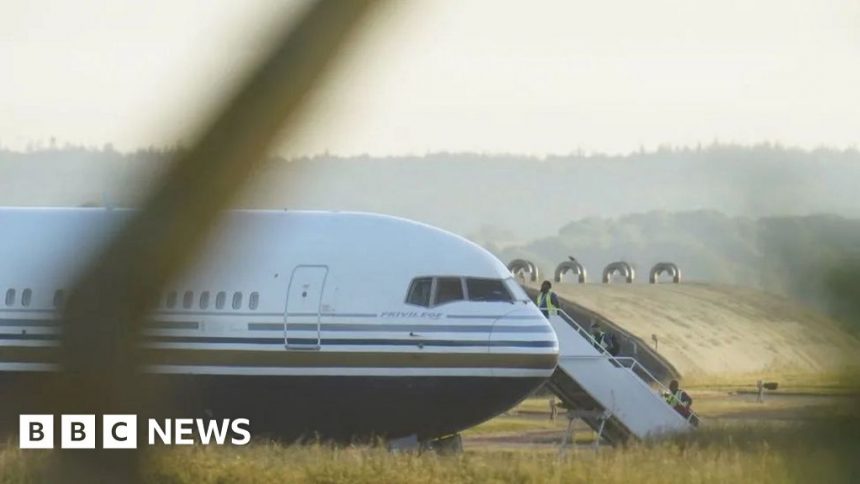UN agency warns of new Rwanda abuses evidence
 PA
PAThe United Nations’ refugee agency has warned judges it may have new evidence from 2024 that Rwanda has endangered asylum seekers, despite Parliament passing a law declaring the country is safe.
In a highly significant intervention in the continuing legal battle over the policy, the UNHCR told the High Court on Monday that it is investigating new allegations of abuses.
Those allegations include individuals potentially being sent to countries where they could be tortured, despite Rishi Sunak arguing, during the same period, that Rwanda was a safe partner for the UK.
A judge has granted the UN agency permission to prepare a dossier before a flight of asylum seekers can leave the UK.
The court’s decision is a blow to the government because the agency’s intervention was a deciding factor in the Supreme Court finding that the original Rwanda plan was unlawful.
Home Secretary James Cleverly’s lawyers have told the court that no one will be sent to Rwanda before 24 July. Labour has pledged to scrap the policy if it wins the general election on 4 July.
Despite the uncertainty over the future of the scheme, at least a dozen major challenges are now before the courts – most from individual asylum seekers who want to know their future.
During the first Rwanda legal battle in 2022 and 2023, the UN’s evidence was critical to judging whether the country could be considered a safe and fair place to send asylum seekers.
It showed the British courts evidence of Rwanda subjecting refugees to “refoulement” – the practice of illegally returning an asylum seeker to a country they had fled from, despite knowing they may be tortured.

During Monday’s hearing, lawyers for the agency said that it wanted time to prepare and present new evidence on what had happened since it compiled its original evidence in 2022.
Lawrence Bottinick, a UN official, told the court in a witness statement that the agency had not seen any improvements.
“In particular, UNHCR is aware of repeated incidents of refoulement from Rwanda and denial of access to the asylum procedure to asylum seekers in Rwanda post-dating my earlier statements,” he said.
“These incidents have occurred in a variety of contexts and continued into 2024.”
Mr Bottinick said the incidents continued to undermine the “fairness, reliability and coherence” of Rwanda’s process for assessing refugees – but that the UN’s team needed more time to gather and fact-check these incidents before they could be presented in court.
The agency’s lawyers also told the court that its staff had met British officials in Kigali, Rwanda’s capital, on 7 December last year, and told them they knew of at least seven cases of refoulement during 2023.
That same day, Rishi Sunak unveiled his new Rwanda plan, which bars judges from considering whether the country is unsafe.
Lawyers for Mr Cleverly told the High Court that there was no legal reason why any of the questions potentially being raised by the UNHCR should stop a flight on 24 July.
But Mr Justice Chamberlain ruled the agency’s evidence could be important and gave it permission to gather as many facts as possible to present to the court by 28 June.
The judge gave the home secretary until the day after the general election to tell the court what he thinks about the UN’s evidence.







